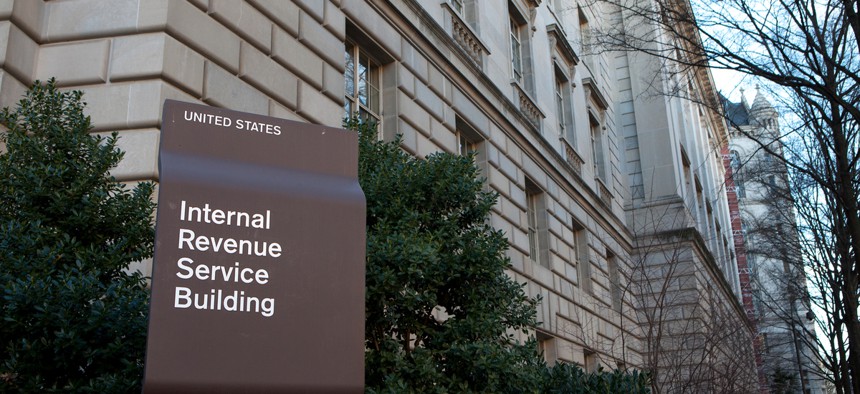
Shutterstock.com
IRS Is Advised to Get Its Financial House in Order
GAO updates its long-standing critique of internal auditing deficiencies.
The ability of the Internal Revenue Service to track unpaid tax assessments suffered from “continuing control deficiencies” in fiscal 2018, the Government Accountability Office reported last week.
The watchdog’s May 9 letter, addressed to Internal Revenue Commissioner Charles Rettig, announced “new and continuing problems related” to the agency’s internal controls over financial reporting in how the agency estimates the money it will collect from taxes owed, how it safeguards taxpayer information, and how it reviews “suspicious and questionable” tax returns.
“Problems like these could lead to misstatements in IRS's financial statements, as well as unauthorized access to taxpayer information,” GAO warned.
GAO has been annually examining and questioning IRS financial statements since 1992. The May 2019 letter catalogs the status of past recommendations for tightening internal controls and delivers 12 new ones.
“During fiscal year 2018, we identified continuing control deficiencies in IRS’s accounting for federal taxes receivable and other unpaid assessments that collectively represent a significant deficiency in IRS’s internal control over unpaid assessments,” the letter said.
For example, Congress’s auditors found that IRS’s financial management systems for tax transactions “did not maintain readily available and reliable unpaid assessments information to support appropriate financial reporting and informed management decision-making throughout the year. Specifically, these systems continued to produce transactions with classification inaccuracies and that lack traceability to and back from the general ledger,” the letter said. “In addition, taxpayer accounts continued to be adversely affected by erroneous information.”
Beyond the significant deficiencies, GAO also identified smaller-scale internal control problems that warrant attention. They include the agency’s handling of its nationwide strategy for safeguarding taxpayer receipts and associated information, physical security policies and procedures, review of visitor access logs, transmission of taxpayer receipts,designations of unit security representatives, review of automated tax refund information prior to certification for payment, review of refund schedule numbers for manual refunds, and review of suspicious and questionable tax returns.
Of the past 32 outstanding recommendations, IRS was credited with closing six through corrective actions during fiscal 2018, leaving a new total of 37 recommendations still to address.
Among the new recommendations was one advising the commissioner to “resolve the system limitations affecting the recording and maintenance of reliable and appropriately classified unpaid assessments and related taxpayer data to support timely and informed management decisions, and enable appropriate financial reporting of unpaid assessment balances throughout the year.” Another recommended identifying “the control deficiencies that result in significant errors in taxpayer accounts and implement control procedures to routinely and effectively prevent, or detect and correct, such errors.”
Rettig agreed with GAO’s recommendations. He praised the “diligent work and dedication by IRS staff” for progress in such areas as financial reporting to account for agency property, plant and equipment on the general ledger. And he promised to continue implementing processes to “prevent or mitigate internal control deficiencies and improve financial management.”







